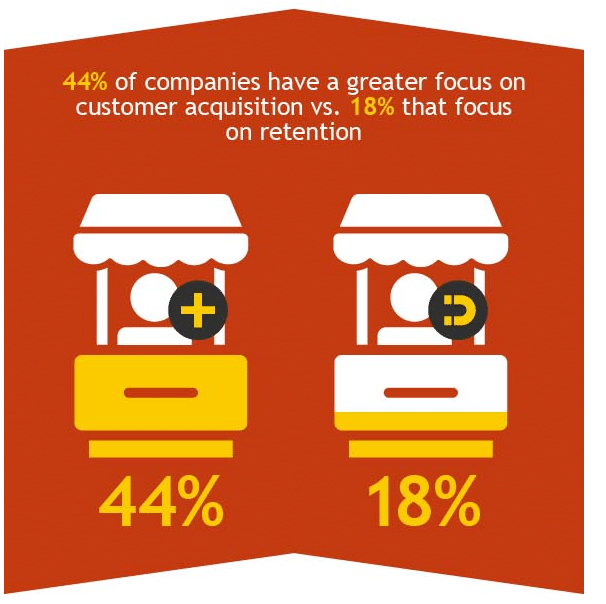Engaging with your customers is one of the most crucial factors when it comes to business success. How your customer service team and support team perform is essential in maintaining customer loyalty and retention and encouraging reviews that lead to new customers. A small business depends on these factors as much as any larger organisation.
One term that frequently crops up in discussions around this engagement is ‘rapport’. But what exactly do we mean by rapport, and how do we achieve it? What tangible benefits does good rapport bring?
What is customer rapport?
The Cambridge dictionary defines rapport as:
“A good understanding of someone and an ability to communicate well with them.”
This definition carries well into what we mean by customer rapport. It is the ability to develop and maintain a positive relationship with a client or customer. Building customer rapport may happen in a face to face situation, on a phone call or even via other communication types such as live chat. It can even be established through social media or on sites such as LinkedIn.
If you can build rapport with a customer, it can make it easier to deal with any inquiries, help solve a problem or complaint, and move towards closing a sale. It also enhances the customer experience as they feel heard and understood.
The benefits of building rapport with customers
When a customer support agent is talking with a customer, they’re representing their company. Building rapport is vital for leaving customers with a positive impression of a brand. Beyond this, there are several benefits to establishing good rapport – customers will:
- Like and trust you more, allowing for more open communications.
- Have more confidence in your advice and/or product/service knowledge.
- Consider the relationship to be mutually beneficial.
- Feel as though you have a genuine interest in their query.
- Be more likely to give a positive response to you trying to close a sale with them.
- Trust that you are seeking the best resolution for them.

The CSR challenge: developing customer rapport
Customer service representatives (CSRs) are on the frontline of any engagement with your customer base. This covers everything from electricity company staff dealing with an aggrieved customer to a salesperson trying to sell products on an inbound or outbound call. While some parts of your customer service may use automation, it is with the human factor that rapport is built.
How CSRs deal with a call impacts both customer satisfaction and the outcome. Establishing a solid and friendly relationship can both calm an angry customer and finalise that important sale. In fact, as much as 90% of making a decision can be emotionally driven. The first time you speak to a customer is the start of an important relationship.
Building and maintaining rapport creates positive perception on multiple levels. It enhances the brand, improves the customer’s journey and satisfaction and can lead to more sales and revenue. It is essential that your CSRs not only understand the importance of rapport but can demonstrate a proven ability to establish and maintain it.
Ways to build customer rapport
Knowing what rapport is and what it means to your organisation is one thing, but having the actual skills to achieve it is another thing altogether. Most of these skills can be taught and improved on, so your company must invest in training and development schemes. Let’s take a look at five key aspects to focus on.
1. Language
This covers several aspects of your communication. If you are in a customer-facing situation, it is about vocal language and your body language. Representatives should remain in an open posture to show they are receptive and listening and maintain good eye contact. In both face to face and phone scenarios, the tones and inflexions you use when speaking can be fundamental.
Of course, language is equally important to text communication – perhaps more so, as you need to build rapport without relying on tone and body language.
It’s important to remain friendly, show empathy, and demonstrate that you are willing to listen to whatever the customer has to say. Roleplaying can play a crucial part in training CSRs of any type (this can be done in life or webinars). Through this, your customer service team can learn how and when to respond. What we say and how we say it are two of the major building blocks in establishing rapport.

2. Listening
Another crucial aspect of building rapport is listening. Rather than just hearing what the customer says, listening involves understanding what the customer feels and their point of view. It can be easy to ‘switch off’ if you have heard multiple and repetitive queries. But switching off means you may miss important information and nuances in the customer’s conversation.
It would help if you always used active listening. That means that you acknowledge the customer’s points, essential ones. If you feel you have misunderstood or missed the point, you can reply with a short question. For example: “When you say you had problems with tuning the TV, was it with manual or automatic tuning?” Customers appreciate being listened to properly.
3. Recognising and understanding the need
After any icebreakers, the opening exchanges in a conversation with a customer may be the most important points. If you fail to recognise and understand their need/reason for the call, you will face an uphill battle when it comes to establishing rapport. If a customer calls to complain about something, then the last thing they want is someone trying to sell or cross-sell a product.
If you are unsure of the reason for their inquiry, do not be afraid to be proactive and ask. Go back to your active listening skills, acknowledge their points, and ask pertinent questions. Don’t let enthusiasm for a sale or assumptions about their reasons derail the conversation. Establish the foundation for the call at the earliest possible point.
4. Dialogue
Building rapport with a customer is not just an exchange of words. It is about creating a dialogue from the first minute that establishes the customer’s needs and then seeks to meet those needs. It may seem obvious, but start with small talk and a basic exchange of information and pleasantries: tell them your name, ask the customer’s name, ask how they are, etc.
Where possible, only use open-ended questions. Closed questions (those with single-word answers) can stifle good dialogue and rapport. A good example of an open-ended question would be: “What features would you look for in a new TV?” Open-ended questions help you collect the information to take the dialogue to a positive outcome.
5. Don’t Be Scared
Your customer is another human being. There may be cases where you deal with angry customers who are initially confrontational. Still, through empathy and active listening, you can calm them down so that you can move forward and hopefully solve whatever issue they have. Do not be afraid to ask questions and not be afraid to let them air any grievances first.
For a sales team, it’s important to avoid being scared at the end of any call. Too many salespeople lose a sale because they are afraid to make that final move or upsell or cross-sell relevant products. If you have built a good rapport, you should have the confidence to make that final move and ask for a sale.
The takeaway
Good rapport is a crucial building block for establishing a positive engagement with a customer and helping them have a more positive journey. It is also an essential part in helping to close sales and thus increase company revenue and profits.
It helps to think of your role as a CSR as an ambassador for yourself and your company. Good engagement reflects well on the brand you represent, can cement customer retention, and will make it more likely that the customer will recommend your business to friends and family and leave positive reviews.
Originally published Apr 19, 2021

